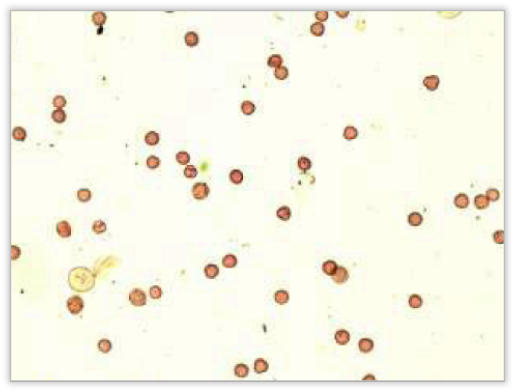PARTICULAR CASES
Case 1
Agra meteorology of the German Weather Service, DWD
With the Institute of Agra meteorology of the German Weather Service, DWD, in Braunschweig, Germany we have a long lasting cooperation. This institute collects pollen of birch trees, and of rye, maize and ambrosia in experimental fields. Therefore these occur rarely or even in huge amounts.
They collect these data for modeling a forecast of certain meteorological conditions, to predict the time and amount of pollen release from these plants. This information is distributed by the DWD to the clients in agriculture.
To avoid the monotone counting of only one pollen type by eye inspection and to overcome personal shortness, they tested and finally integrated the aeroScope ® in this task. Ten slides are scanned overnight for undisturbed operation. The resulting 3000 to 6000 images are analyzed by the automatic image analysis in the next morning, giving detailed results within three hours from ten samples.
The recent project is the detection of spores of the downy mildew Poronospora in cultivated onion.
The resolution of the images allows such a sophisticated evaluation.

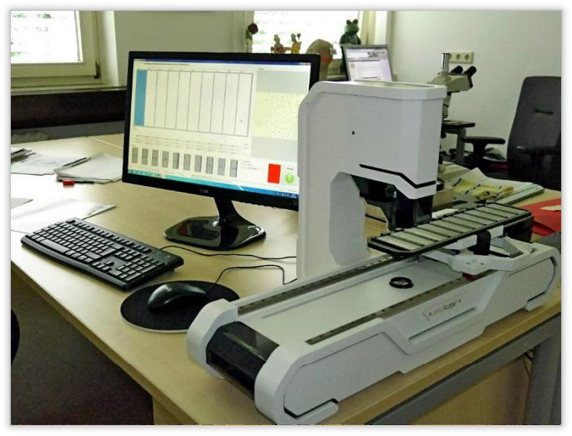
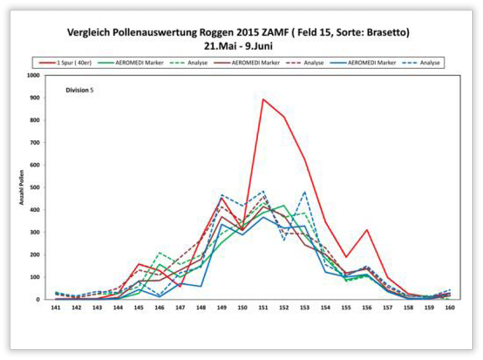
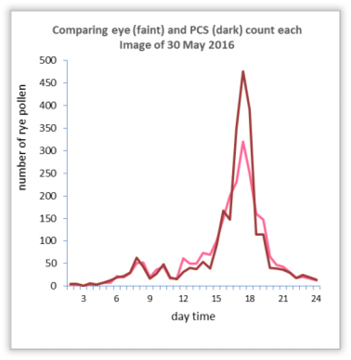
Case 2
Departamento de Botánica, Ecología y Fisiología Vegetal, Universidad de Córdoba, Spain
At the “Departamento de Botánica, Ecología y Fisiología Vegetal” in the Universidad de Córdoba, Spain, is placed a second aeroScope ® . The Director of the Institute, Professor Dr. Carmen Galan asked for it, to follow the release of olive pollen at different places around Cordoba. The region around is covered by huge fields with olive trees. The number of pollen released at a certain weather conditions may be several thousand. This is a condition, that is easily handled by the aeroScope ® and consequent automatic analysis.
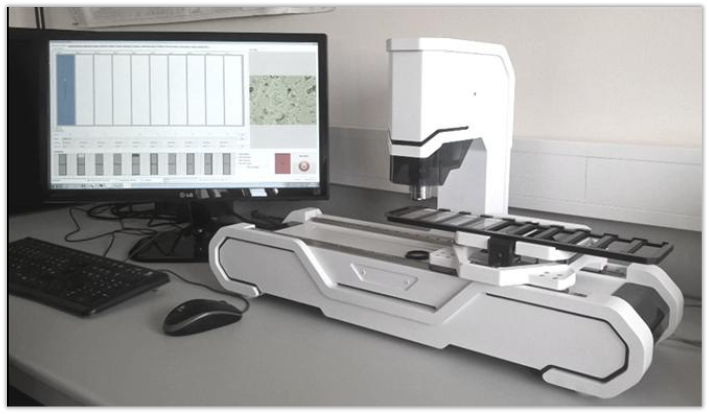
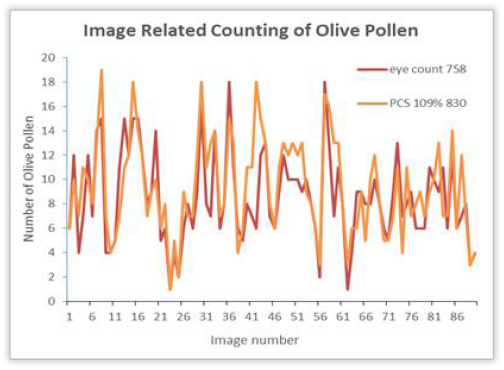
Case 3
Polleninformationsdienst, PID, Berlin, Germany
The Polleninformationsdienst, PID, at Berlin, Germany, is interested to use the aeroScope ® .
They would like to
• Control the pollen release in medical testing with proper documentation
• Get high resolution of time from patient related traps
• Archive the daily monitoring of pollen in the routine traps.
